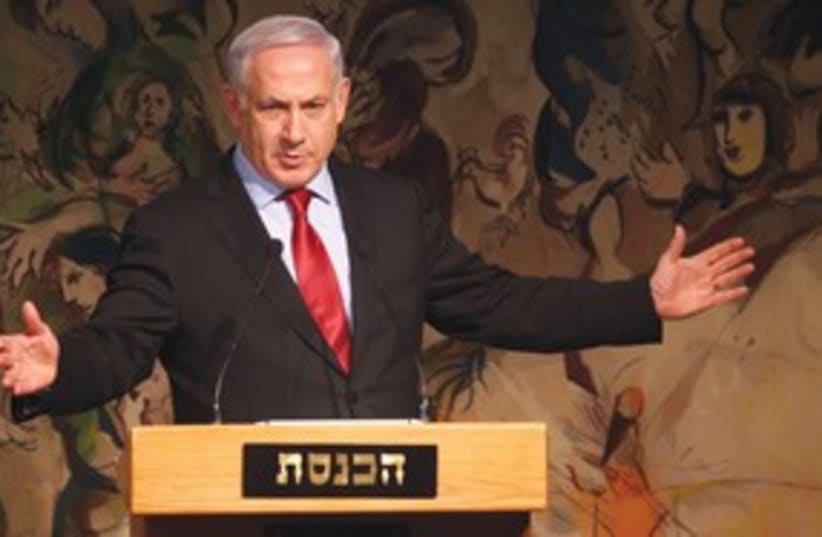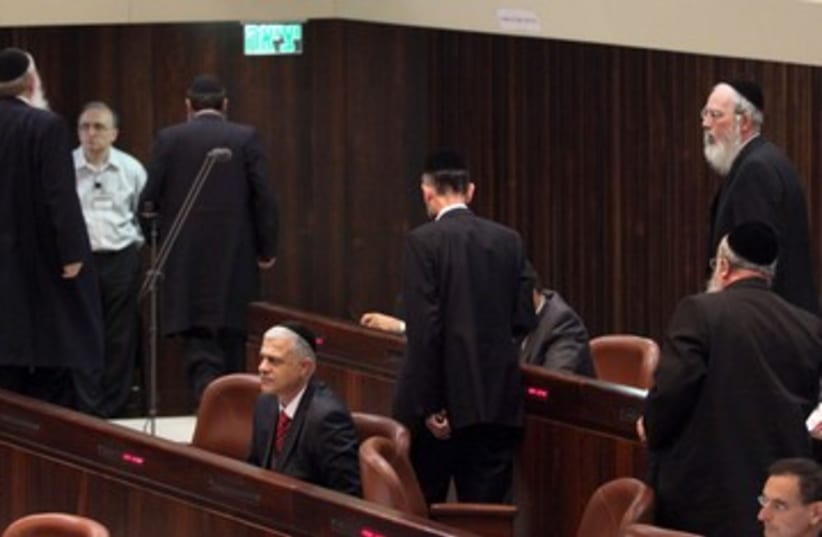
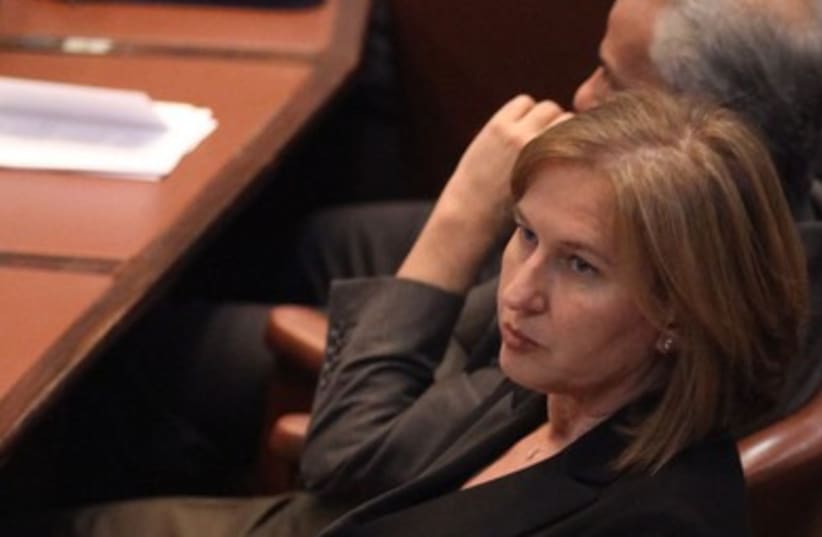
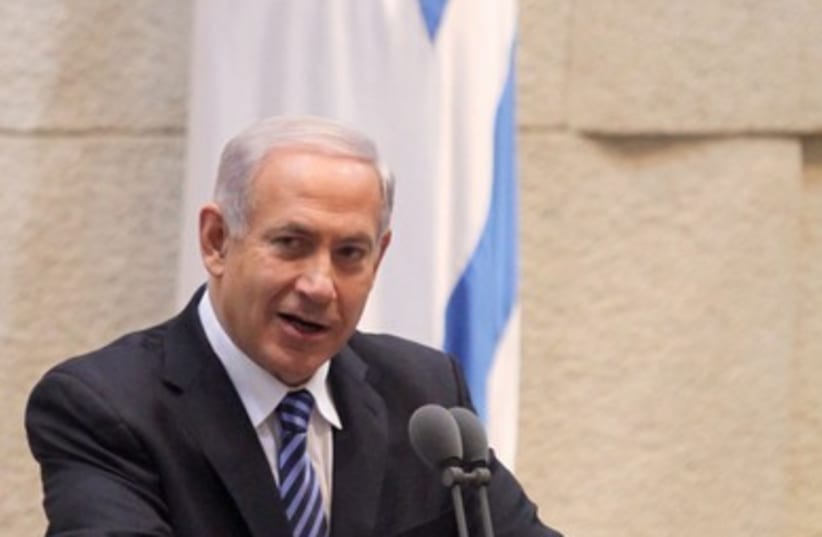
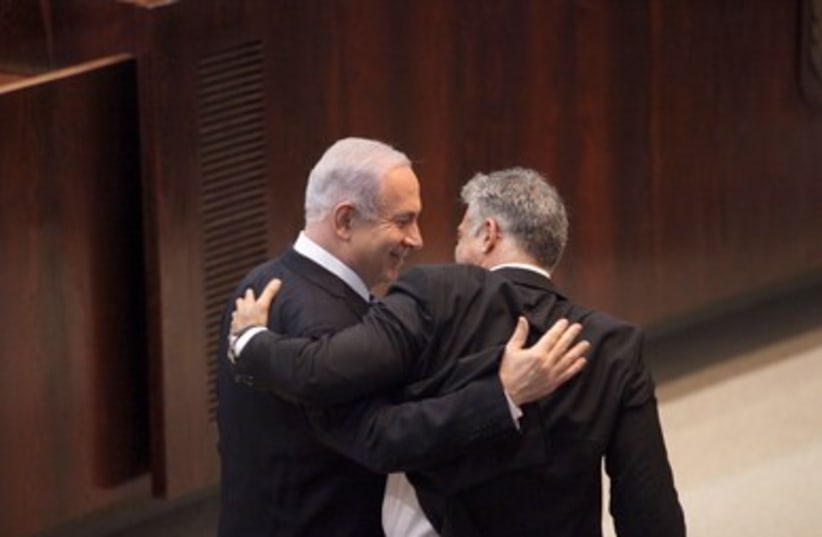
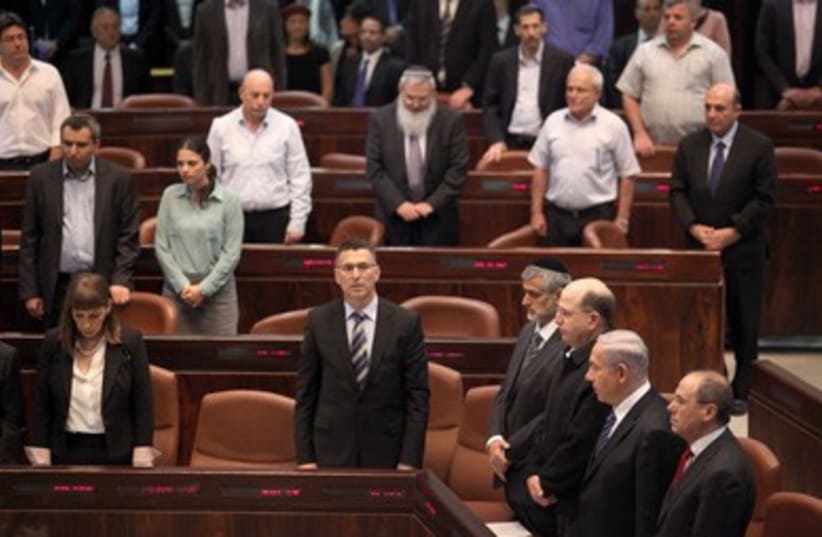
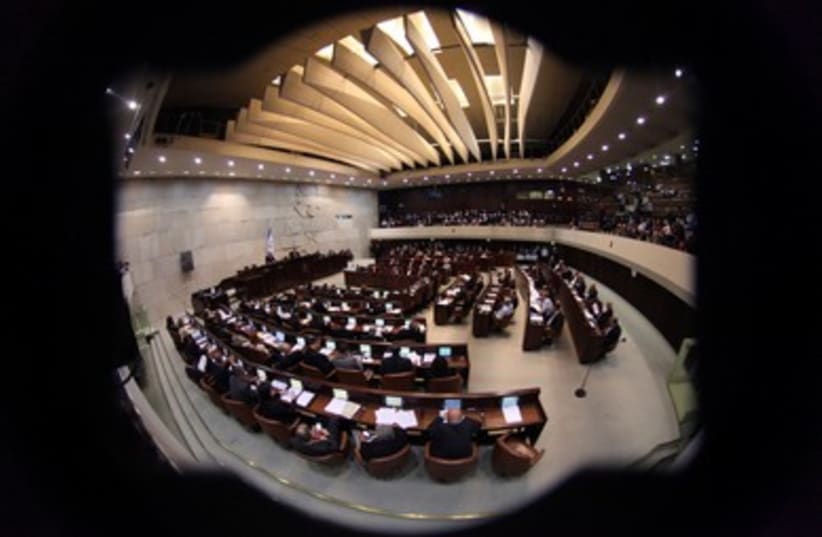
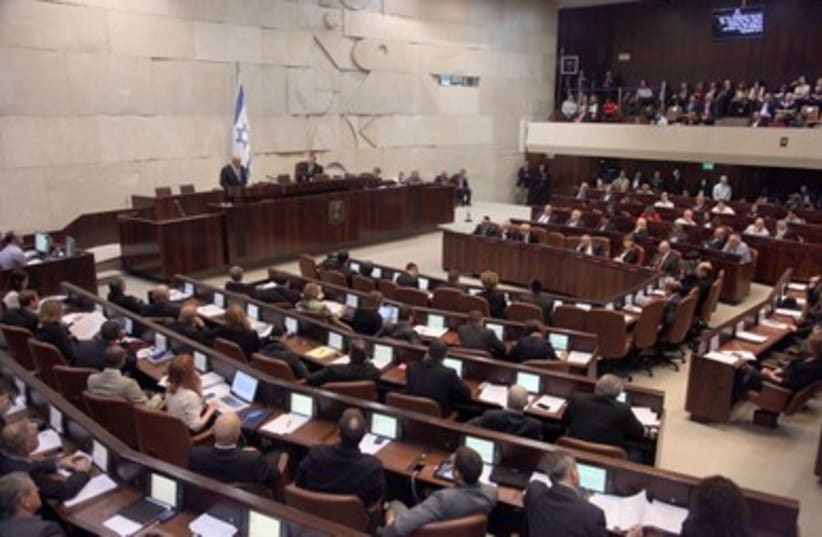

The new government was scheduled to be sworn in on Monday evening after six weeks of coalition negotiations yielded a 68-member coalition composed of Likud Beytenu, Yesh Atid, Bayit Yehudi and Hatnua.Netanyahu addressed the Knesset after Likud minister Yuli Edelstein was voted in as the new Knesset speaker, replacing Reuven Rivlin."As prime minister, I don't have the privilege to abandon the external challenges to Israel. We must ensure the existence of the State of Israel. Therefore, the first priority will be the defense of the country and its citizens."Netanyahu noted Iran continuing to get closer to crossing the "red line" towards a nuclear weapon, and the threat of some of the "most dangerous weapons in the world" being transferred into the hands of terrorists in a deteriorating Syria as the main threats to Israel.He stated that the new government would be ready to make "a historic compromise" for the sake of a peace agreement with the Palestinians, but added that the Palestinian leadership would have to be willing to compromise as well.Labor leader Shelly Yacimovich spoke after Netanyahu, attacking the new government as a coalition of rich "capitalists" who never had to struggle for money and could not relate to the people.She referred to the new government as a government of "exclusion," of all marginal groups in society.The Labor leader stated that all of the coalition members shared a right-wing political ideology.Yacimovich rejected the notion that Yesh Atid leader Yair Lapid and Bayit Yehudi chairman Naftali Bennett represent "new politics," saying that the coalition agreements showed the same old fighting for portfolios.The Labor leader reiterated that Labor would reconsider joining the coalition in the event that Netanyahu was on the verge of signing a peace agreement with the Palestinians.
